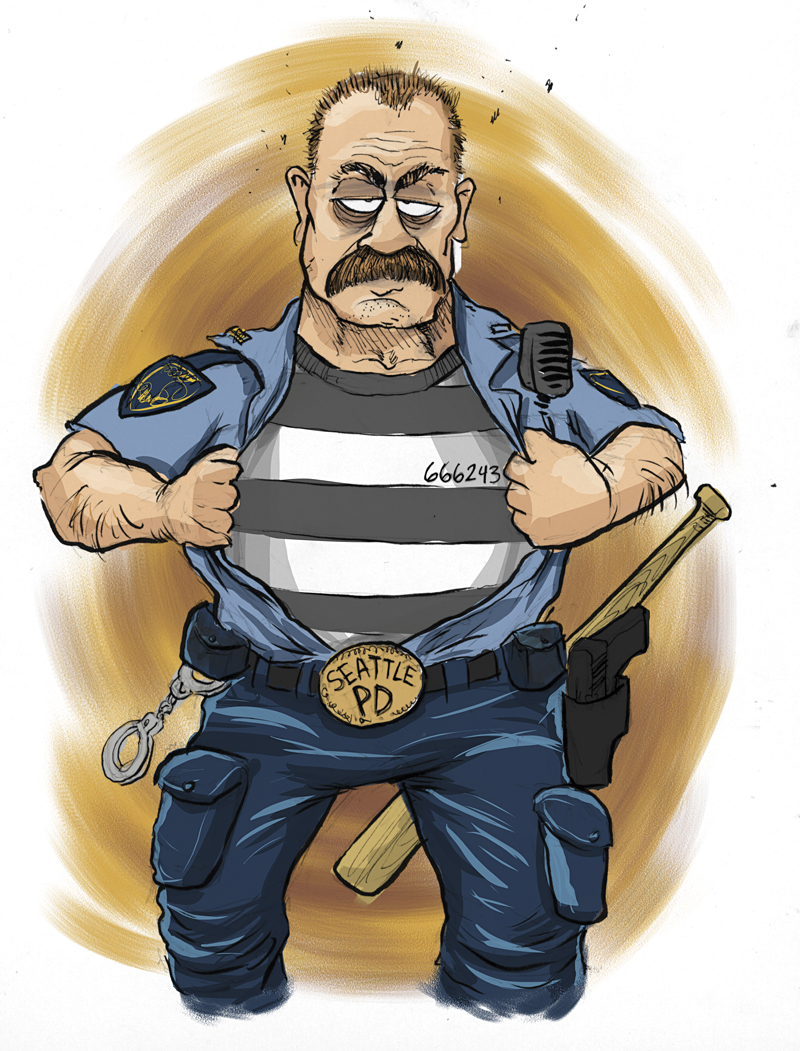Why He Walked
Since Officer Ian Birk shot John T. Williams there have been marches, town-hall meetings, demands for Seattle Police Department Chief John Diaz to step down, and the start of a federal investigation into the department’s use of force.
Last week, although SPD’s own Firearms Review Commission deemed the shooting “unjustified” and Birk resigned, there was still anger (although not enough to provoke a riot; see above) directed at King County Prosecutor Dan Satterberg for not charging Birk. But that decision was inevitable, as Washington law protects officers like Birk from prosecution over the use of deadly force in all but the most egregious cases.
That specific state law (RCW 9A.16.040) lists 10 different ways in which a peace officer can legally kill someone—including one that says an officer can do so if he or she has “probable cause to believe that the suspect, if not apprehended, poses a threat of serious physical harm to the officer or a threat of serious physical harm to others.”
Birk has long argued that he believed Williams posed a threat as the half-deaf, headphone-wearing chronic inebriate stood nine feet away, giving him dirty looks while holding a dull carving blade. And that is pretty much that.
But to take this point further, the law also says that “a public officer or peace officer shall not be held criminally liable for using deadly force without malice and with a good faith belief that such act is justifiable pursuant to this section.” In other words, Satterberg would have had to prove that Birk didn’t actually believe Williams posed a threat and that he shot him with the direct intention of committing a crime.
Proving what anyone believes is a nearly impossible legal task. Thus, it’s the law itself, more than anything else, that kept Birk from being held criminally liable for Williams’ death. Whether he and the rest of the department are financially liable is another story—one likely not to fare as well for cops. And whether the decision leads to a large-scale department shake-up also remains to be seen.
What He’ll Do Next
What are the prospects for a young man with no criminal record whose name, when Google-searched, brings up endless news stories about how he unjustifiably killed someone and got away with it because he was a cop? If other such officers are any guide, then Ian Birk’s odds at a decent life are long, but hardly impossible.
The first mental image you might see when thinking about disgraced cops is the Rodney King video. In 2004, 13 years after King’s beating went public, the Los Angeles Times tracked down Timothy Wind, one of the video’s infamous baton-swingers. After being acquitted, Wind moved to Indiana, where he had trouble finding a job and suffered from painful ulcers. The paper found him a thoroughly disgusted and dejected man, furious at the world and unrepentant of the actions that led to his circumstances. “We used our training,” he said in defending the beating he and the other officers famously gave King, which was captured on camera (a rarity back then).
Not all the King cops suffered in the aftermath. Stacey Koon, one of the two officers convicted in the beating, wrote a relatively well-received book about his ordeal. Another, Ted Briseno, found a job as a security guard. Michael Allegretti was fired from his job with the Chicago Police Department in 2007 for pulling two women over and making them show him their breasts to avoid a traffic ticket. He was later hired by the city of Chicago as a supervisor of parking attendants, but two weeks in he was fired again when the city decided his history was too embarrassing after all.
In this state, Brad Thoma was fired from his job with the Spokane Police Department for a DUI hit-and-run just one month ago. But in January he was offered a new high-paying detective gig with the same department after a change in the law allowed him to avoid using the ignition interlock device he’d been ordered to use beforehand.
Stories such as these cover the spectrum from hopeless wandering and depression to quick and easy transition. Where Ian Birk will end up will first depend on what Seattle’s Office of Professional Accountability decides should be the lasting mark on his record and whether he’s able in the future to work as a peace officer in this state. After that, tenacity and luck will play itself out. But despite his infamy in this corner of the country, one likely would be hard-pressed to find anyone elsewhere who’s heard his name—that is, unless they bother to check Google.





